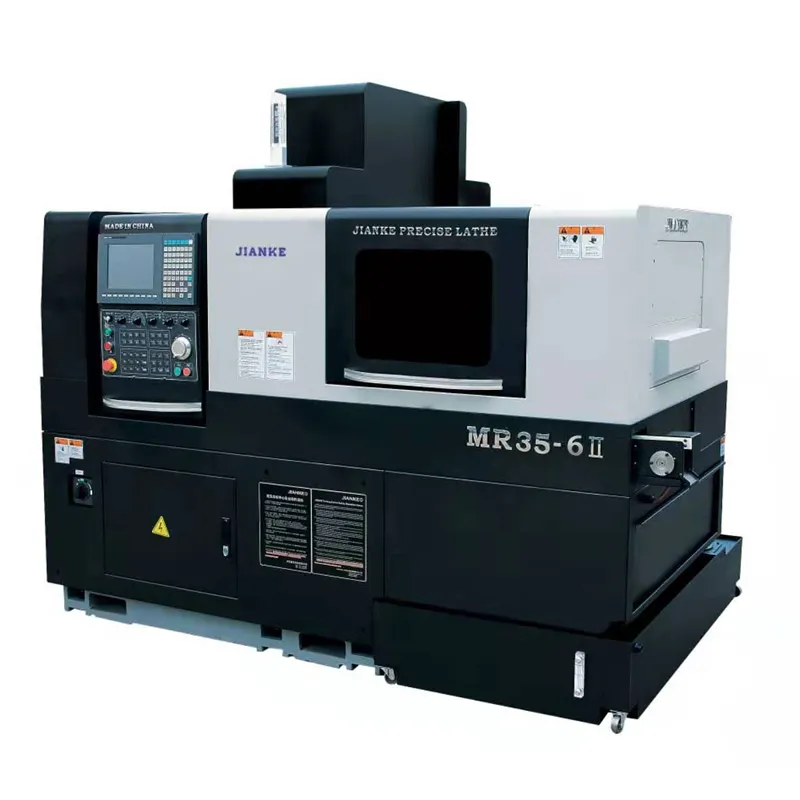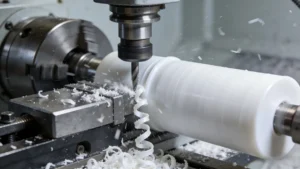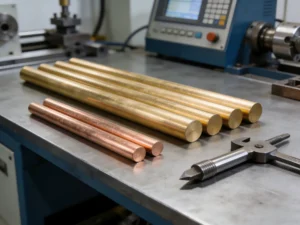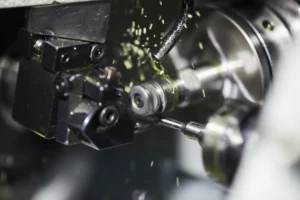In today’s manufacturing world, the CNC Machine is an essential production tool. It boosts efficiency and ensures high precision and consistency in products. Whether it’s the automotive, aerospace, or electronics industry, CNC machines are the backbone of complex part manufacturing.
But have you ever wondered why different industries have such varied requirements for CNC Machines? Why does the automotive sector focus on volume and speed, while aerospace values multi-axis precision? And why does the electronics industry need micro-machining capabilities? This article will guide you through the unique demands of each sector, helping you find the CNC solution that best fits your business.
If you’re a B2B customer considering a CNC machines purchase, you’ll find practical selection tips here. The right CNC machine can make your production smoother and your products more competitive!
CNC Machine Basics and Main Types
Before diving into industry needs, let’s cover the basics of CNC Machines.
What is a CNC Machine?
A CNC (Computer Numerical Control) machines is an automated device controlled by computer programs. It efficiently performs turning, milling, drilling, and other operations, greatly improving both precision and productivity.
Common CNC machine types include:
- CNC Lathe: Ideal for processing shafts, sleeves, and other rotationally symmetric parts.
- CNC Milling Machine: Used for flat surfaces and complex contours, widely applied in mold manufacturing.
- CNC Grinding Machine: Mainly for high-precision surface finishing.
- Swiss-type CNC Machines: Excels at micro-precision parts, especially popular in electronics and medical industries.
CNC Machines Requirements in the Automotive Industry
The automotive industry is one of the largest users of CNC machines. Automotive parts are diverse and require both high efficiency and strict quality.
Core requirements in automotive:
- High efficiency and mass production: Key components like engines and gearboxes need to be machined rapidly and in large quantities.
- Automation and flexible manufacturing: Production lines must quickly switch between product models, making automatic tool changing and program switching crucial.
- Strict quality control: Minimal dimensional errors are essential for safety and performance.
Typical applications:
- Engine blocks and pistons
- Transmission gears
- Body structure parts
| Advantage | Description |
|---|---|
| Fast Processing | Meets high-volume production needs |
| High Repeatability | Ensures part consistency |
| High Automation | Reduces labor costs, increases flexibility |
CNC Machines Requirements in the Aerospace Industry
The aerospace sector sets the bar even higher for CNC machines. Parts here are often complex and made from high-strength, lightweight materials.
Key aerospace requirements:
- Extreme machining precision: Very tight tolerances are required for flight safety.
- Multi-axis capability: Complex surfaces must be machined in a single setup to minimize errors and save time.
- Material diversity: Efficient machining of aluminum alloys, titanium alloys, and composites is essential.
Typical applications:
- Engine blades
- Airframe structures
- Avionics housings
| Requirement | Description |
|---|---|
| Multi-axis Machining | 5-axis and above machines are widely used |
| Tough Material Machining | Titanium, nickel-based alloys, etc. |
| Strict Quality & Safety | Must meet aerospace certifications |
CNC Machine Requirements in the Electronics Industry
The electronics industry’s CNC needs focus on miniaturization and high precision.
Core electronics requirements:
- Micro-machining: Parts are small and structurally complex.
- Material diversity: Plastics, aluminum, copper, and more.
- Flexible batch production: Rapid product updates and varied demands.
Typical applications:
- Connector housings
- Heat sinks
- PCB brackets
| Key Requirement | Description |
|---|---|
| Micro-machining | High precision for small components |
| Quick Changeover | Supports multi-variety, small-batch runs |
| Automated Inspection | Ensures product quality |

CNC Machine Needs in Medical Devices and Semiconductors
Beyond traditional industries, CNC machine demand is growing fast in medical devices and semiconductors.
Medical devices:
- Require extremely high cleanliness and precision
- Complex structures and frequent customization
- Common materials: stainless steel, titanium, high-performance plastics
Semiconductors:
- Micron-level precision is critical
- Manufacturing equipment parts are intricate and require extreme detail
- CNC machines produce key parts like heat sinks and packaging housings
| Industry | Requirement Features |
|---|---|
| Medical Devices | High cleanliness, complex structures, customization |
| Semiconductors | Ultra-high precision, small size, special materials |
How Industry Differences Affect CNC Machine Selection and Customization
Every industry has unique priorities for CNC machine selection and customization:
- Precision vs. Speed: Aerospace and medical devices focus on ultimate precision, while automotive emphasizes speed and capacity.
- Automation: Electronics and automotive favor high automation to minimize manual intervention.
- Multi-axis capability: Complex parts drive the popularity of 5-axis and higher machines.
- Material adaptability: The ability to handle special materials is a must for advanced machines.
Understanding your industry’s specific needs is crucial when choosing a CNC machine. Custom solutions help you maintain quality while boosting productivity.
As we’ve seen, CNC Machine requirements vary greatly across industries. Automotive seeks high-volume efficiency, aerospace demands high-precision complex machining, electronics need micro-scale accuracy, and medical devices and semiconductors require the highest cleanliness and precision.
Choosing the right CNC machine not only improves product quality but also increases productivity and reduces costs. As a professional CNC machine manufacturer, we understand the diversity of industry needs and offer a wide range of models and customized solutions to help your business embrace the era of smart manufacturing.
If you’re looking for a CNC machine tailored to your industry, contact us anytime for expert advice and custom solutions. Let’s build a more efficient and precise production future together!
FAQ
A CNC Machine is an automated device controlled by computer programs, capable of highly efficient and precise machining.
Each industry’s parts have unique shapes, materials, and batch requirements, leading to different needs for precision, speed, and multi-axis capabilities.
Consider your product complexity, materials, batch size, and automation needs to select the right machine type and configuration.
CNC machines are at the heart of smart manufacturing, supporting automation, digitization, and high-precision machining to boost efficiency and quality.





